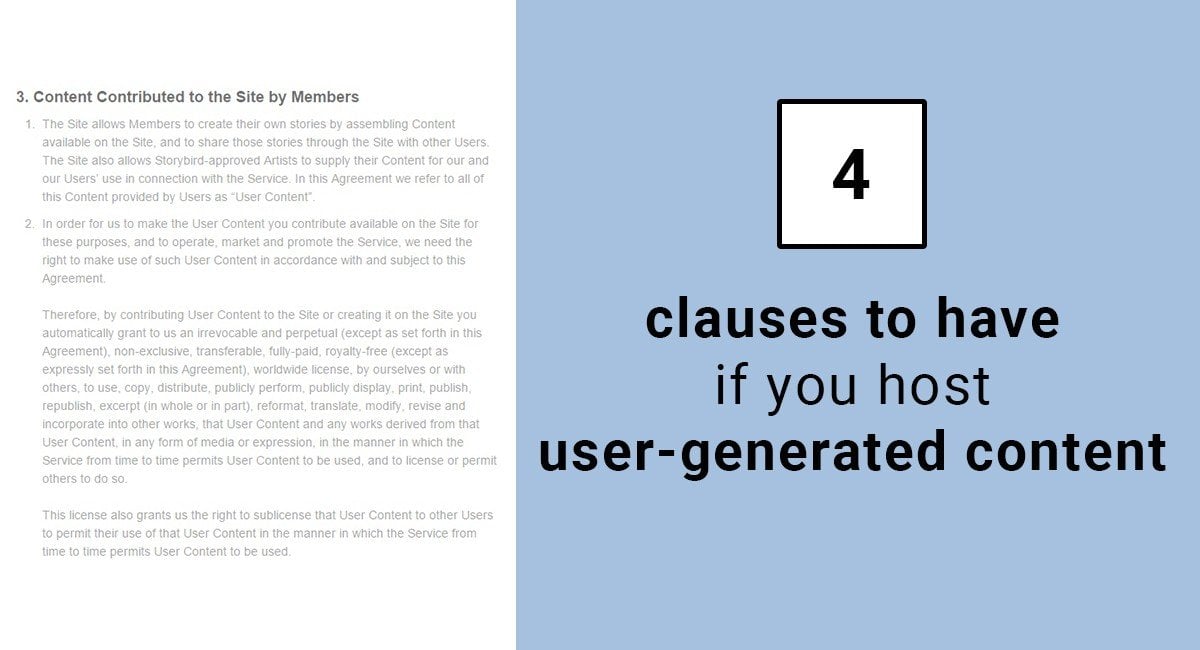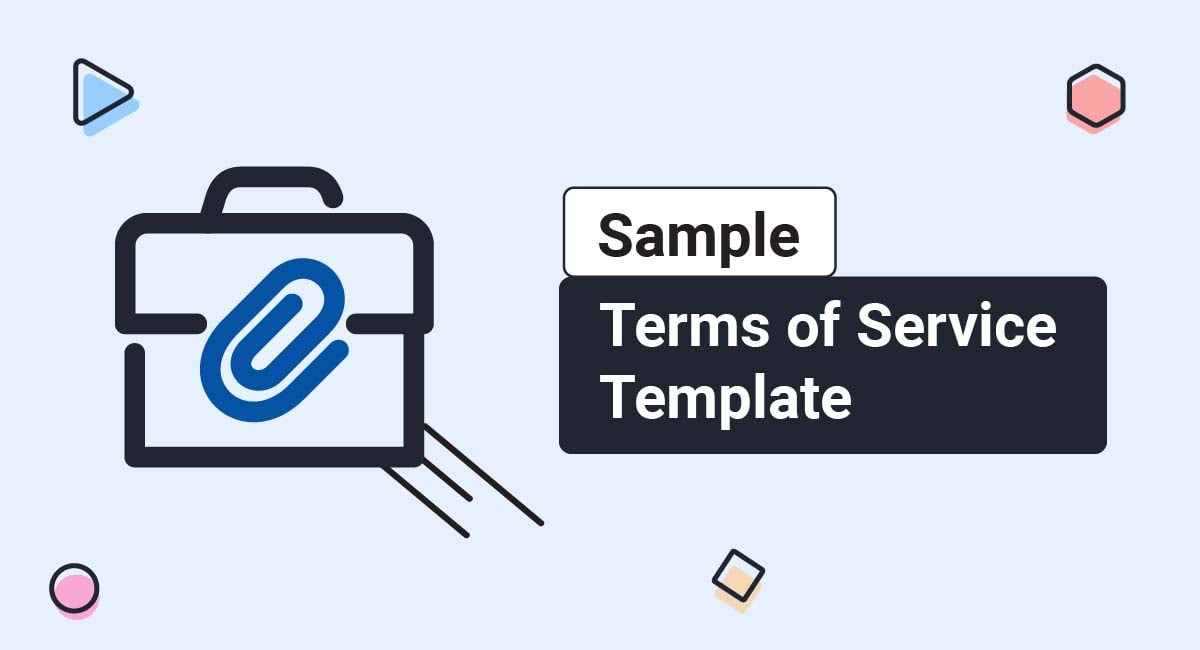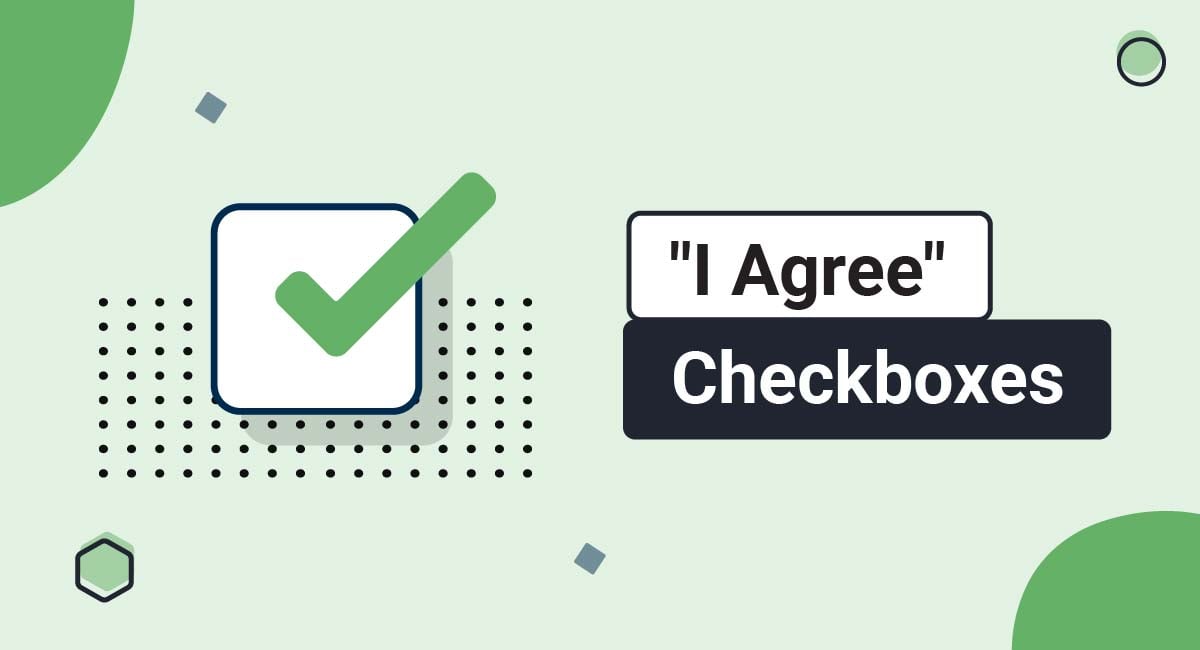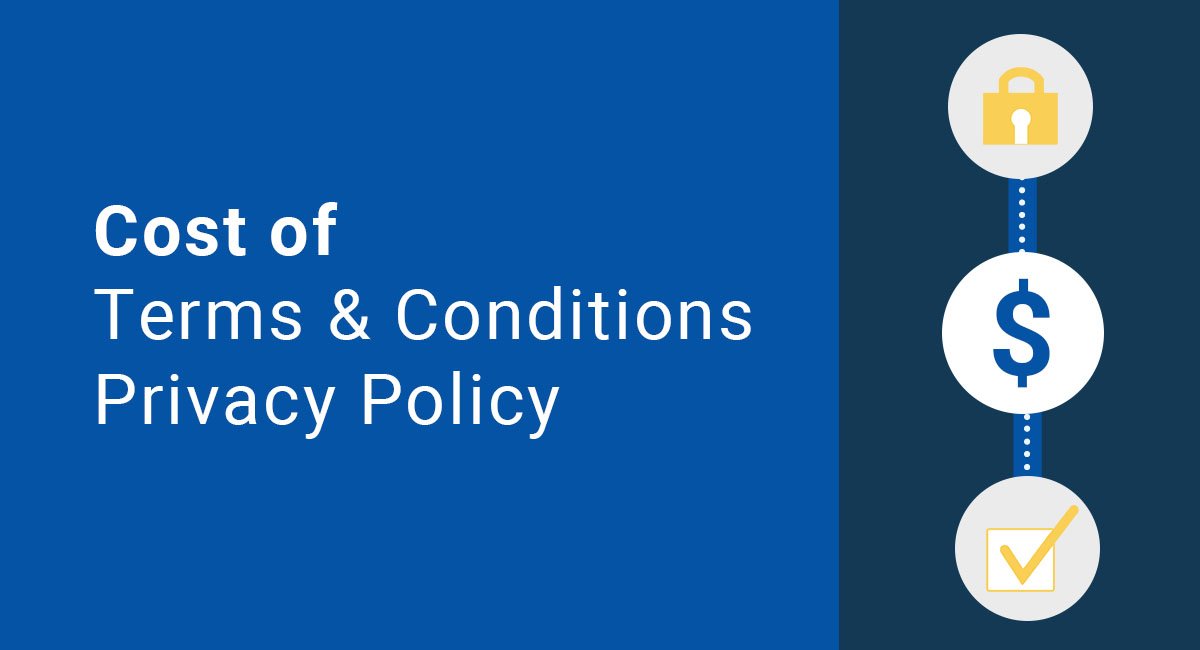Web sites and apps built with user-generated content are quickly becoming the norm. There's the rapidly growing language-learning app Duolingo, numerous Facebook quizzes and games, as well as photo-sharing websites and news aggregators such as reddit.
They all rely on users to create, or contribute, or share things with others. This creates a valuable community for users to interact within, and it also helps to build up a rich and complex website that you can develop and sell later on.
However, there are some unique considerations that you need to take into account from a legal perspective when you develop one of these websites/apps.
Particularly in areas relating to intellectual property, the legal terms that you'll need your users to agree to may have some differences when compared to the standard Terms and Conditions clauses also known as Terms of Use or Terms of Service).
We're going to cover what some of those unique clauses are, when you're dealing with a website or app that uses a lot of user-generated content.
Our Terms and Conditions Generator makes it easy to create a Terms and Conditions agreement for your business. Just follow these steps:
-
At Step 1, select the Website option or the App option or both.
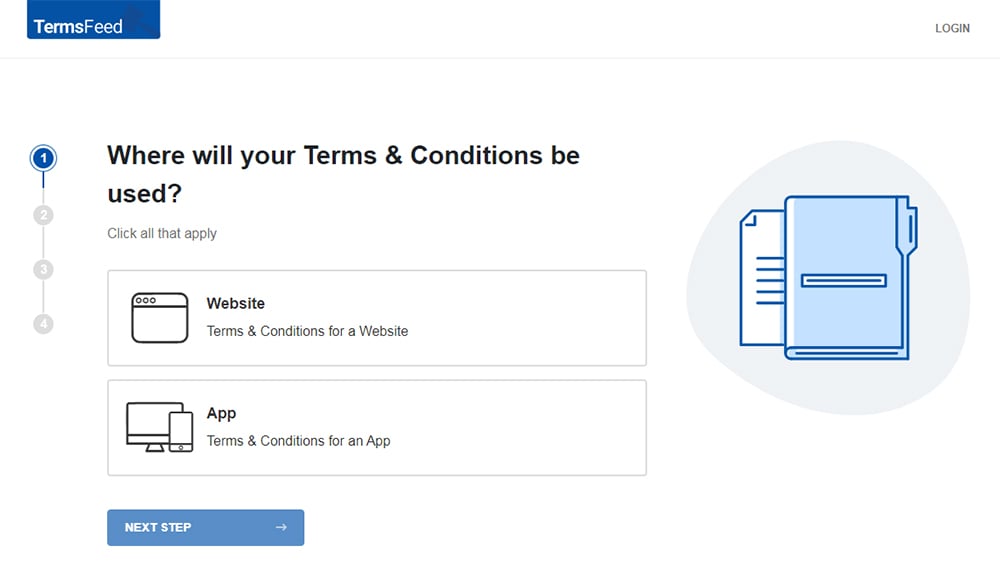
-
Answer some questions about your website or app.
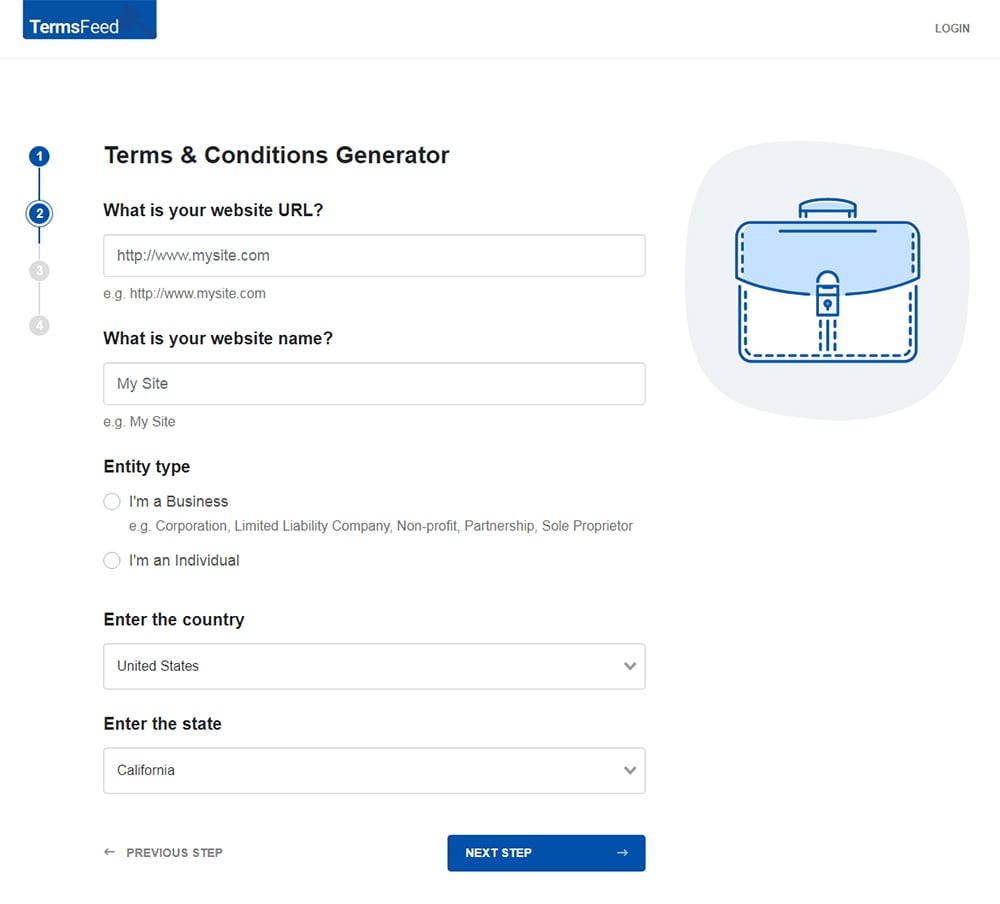
-
Answer some questions about your business.
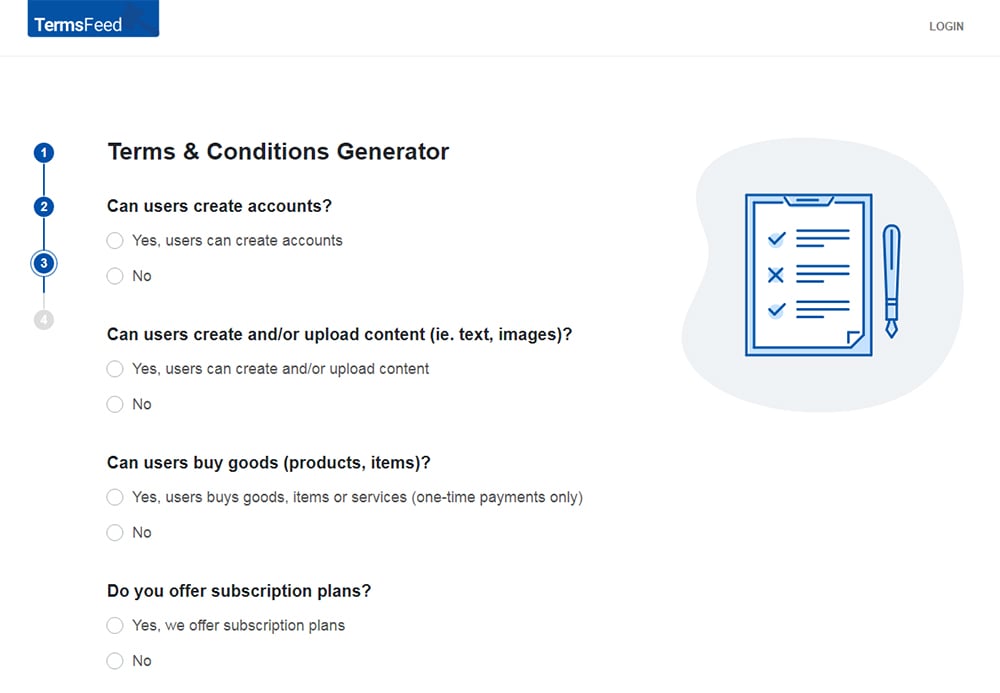
-
Enter the email address where you'd like the T&C delivered and click "Generate."
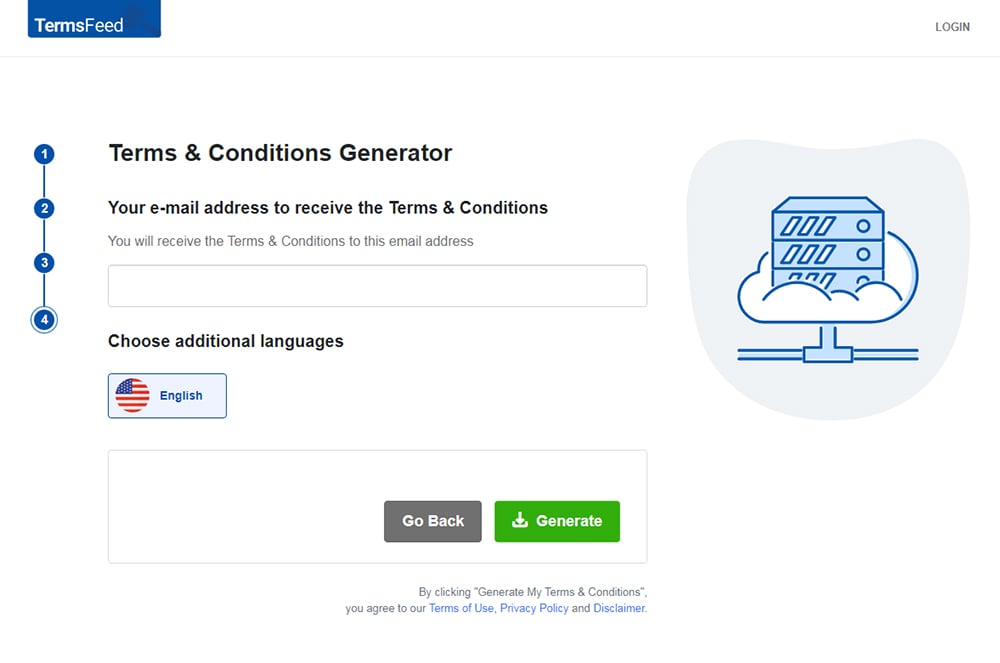
You'll be able to instantly access and download the Terms & Conditions agreement.
What's User-Generated Content? Some examples of user-generated content might be text, such as in a collaborative story-writing website; images, in an image-sharing app; maps or modifications in a game; or pins on a Pinterest board.
All of these things are created by the user and often shared with other users to form an integral part of what your website does and what it provides.
User-generated content can form a large or small part of an app or website and is usually moderated by administrators to avoid a number of issues, some of which are legal in nature.
Let's take a look at what these are.
Clause #1: Intellectual Property
When, as a business (website or mobile app), you're using user-generated content, the primary legal issue that pops up the most is the one relating to intellectual property.
When a person creates content that's unique, such as writing a story or building a map that other players can walk around, they automatically gain intellectual property rights in that content. This is called copyright.
You can register copyright to make it stronger, but it exists by nature in any work that's created by someone originally.

In the US, the law protection of copyright can only attach to fixed representations in a tangible medium. For something to be "fixed" it must be written or recorded on some physical medium, such as your website or mobile app.
Copyright by its very nature can be infringed by someone else reproducing, amending, displaying, or building upon the creative work. If your website uses user-generated content, or if other users can use it, it's highly likely that their use of the work will come under one of the above categories.
This means that if your website or app, as well as other users, use this content, they (you or your users using that content) need to get permission to use it.
Let's take a look at an example clause where intellectual property rights are granted to other users, from the Terms of Service agreement of Storybird, a collaborative storytelling web app:
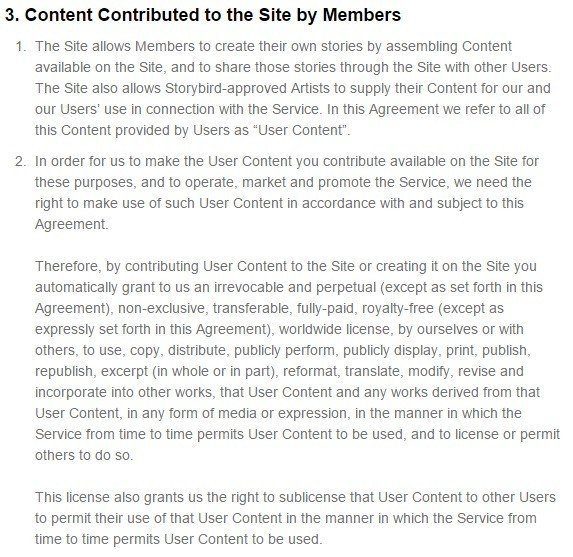
You can see that the section automatically grants the owners of Storybird a license to use the User Content, as well as allowing the owners of Storybird to sublicense the User Content to other Users.
What happens if someone uploads a piece of work that isn't their own? This leads into our next key legal issue: liability.
Clause #2: Liability
Another legal issue is that users may insert information that's already copyrighted by someone else. If your app then uses that information, you don't want to be held liable for breaching the copyright.
Here's an example of this type of clause from the Terms of Use agreement of Dendrite, another collaborative storytelling web app:

You also need to ensure that you limit your liability to things that you can control. If your users are able to upload information such as pictures to your service, they may be uploading illegal information or images, or things that violate the intellectual property rights of a third party like we discussed above.
In case they do take one of those actions in breach of your Terms, make sure that you exclude liability for in your Terms and Conditions agreement.
Have a look at this example from the the Master Subscription Agreement of Salesforce below:
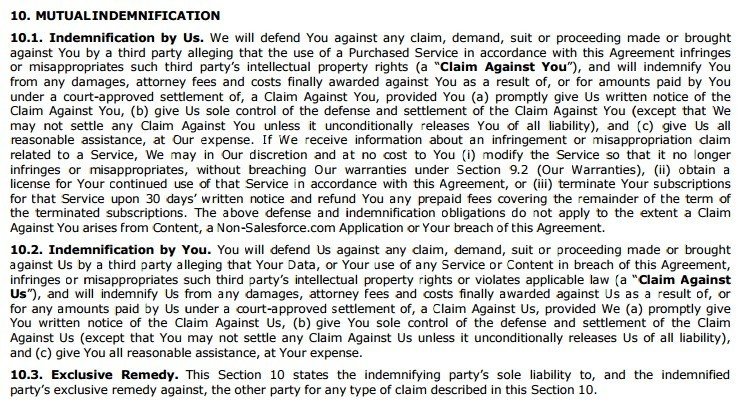
You can see that the user agrees to grant an indemnity to Salesforce if a third party brings a claim against Salesforce, or if user-generated content violates a law.
Clause #3: Privacy
The next thing to consider is that if your website or app is built on a lot of user-generated content, you'll need to ensure that you keep that content safe and collect it in a way that's in line with local and international laws depending on where your users come from.
Most countries around the world have some privacy protection for user data, and if your users are submitting user-generated content, some private information may be connected to this, such as their name and email address.
The primary things that are covered by most pieces of legislation worldwide are:
- Tell your users that you're collecting their information.
Do this through a Privacy Policy agreement.
- Tell them why you are collecting their information (e.g. collecting their email address so that the app can notify them when another user adds to their content)
- Let them know what you are doing with their information and who you will share it with
- Explain how they can amend or delete any information they submitted to you
- Let them know how they can lay any complaints
- Tell them when your Privacy Policy came into force and any amendments since that date
It's also highly likely that you're storing data in the cloud, particularly if you anticipate storing a large amount of user-generated content. It's important to use a reputable cloud storage provider, and ensure that their storage protocols are in line with your local data privacy laws.
For example, the EU requires that the private data of EU citizens can only be stored in countries that have similar data privacy protections to the EU. The EU has relatively stringent legislation in this area, so EU startups have to pay particularly close attention to where their cloud storage providers are based.
Another aspect of this issue is that you need to ensure you are protected if your cloud storage provider has a leak.
Here's an example from the International Federation of Accountants in their Terms of Use agreement page of a clause protecting your liability in the case of data loss:

You can see that they state they are not liable for "any direct, indirect, punitive, incidental, special, consequential damages or any damages", and that it includes "loss of data".
Clause #4: Acceptable Use
Finally, the last thing to consider is the acceptable uses of your website and mobile app, and what happens if a user is using your product in an abusive way or harming your product or other users.
The easiest way to deal with these issues is within your Terms of Use that you need to have for your website or app.
Most apps and websites have either a dedicated Acceptable Use Policy, or a section in their Terms and Conditions setting out what kind of behavior is allowed and what's prohibited.
It's common practice to include a "Suspension" or a "Termination" clause where you can stop providing your app services to a user at any point if they breach your terms or are disruptive to other users.
Here's an example of this type of section from the Community Guidelines of Flickr:
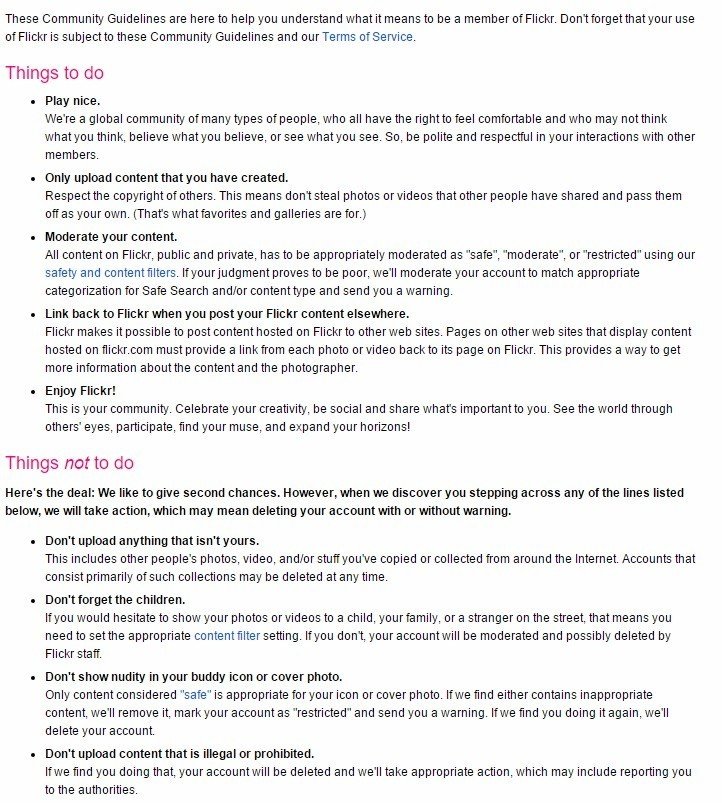
There are many benefits to creating and maintaining a website or app built with user-generated content. For example, when your users share the content they created it allows you to grow your audience and strengthen your brand at the same time.
Covering off intellectual property, privacy, liability, and acceptable use issues is simple, and you can do so by ensuring that you have a good Privacy Policy and Terms of Use in place that covers the above clauses.
This will make sure that you are protected from any legal issues that could arise, and your users can continue to enjoy and contribute to your community.

Comprehensive compliance starts with a Privacy Policy.
Comply with the law with our agreements, policies, and consent banners. Everything is included.
